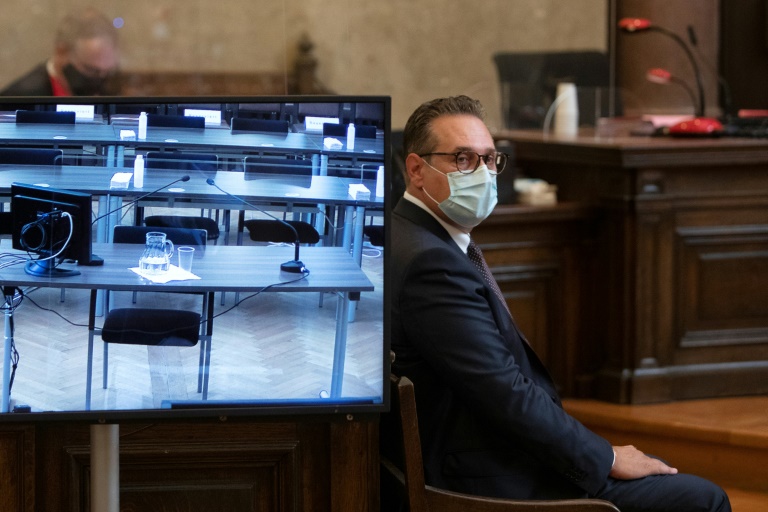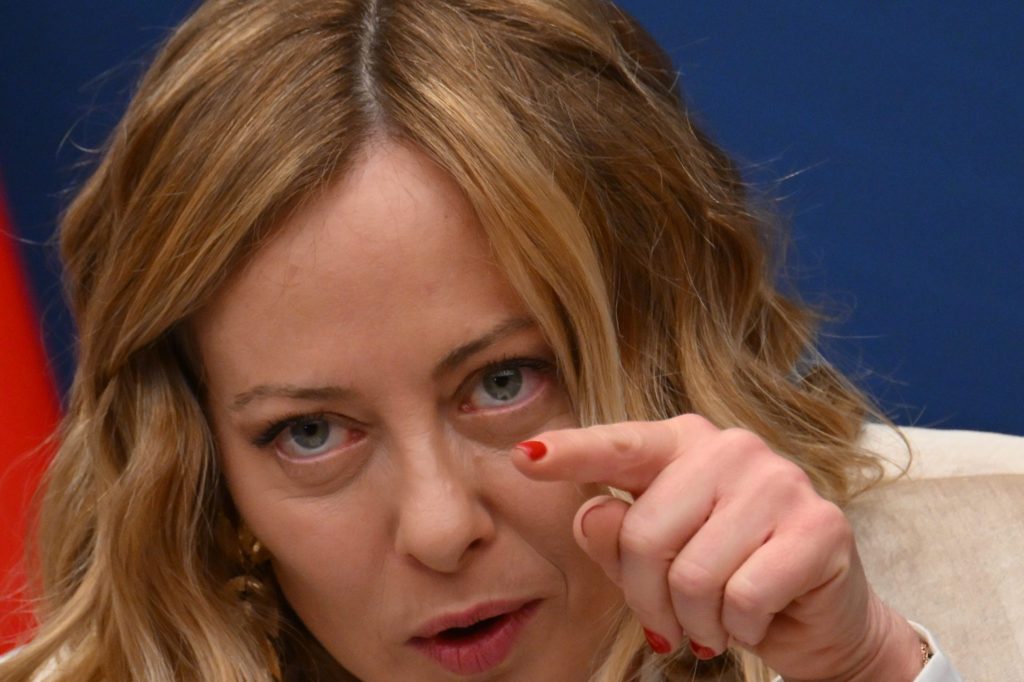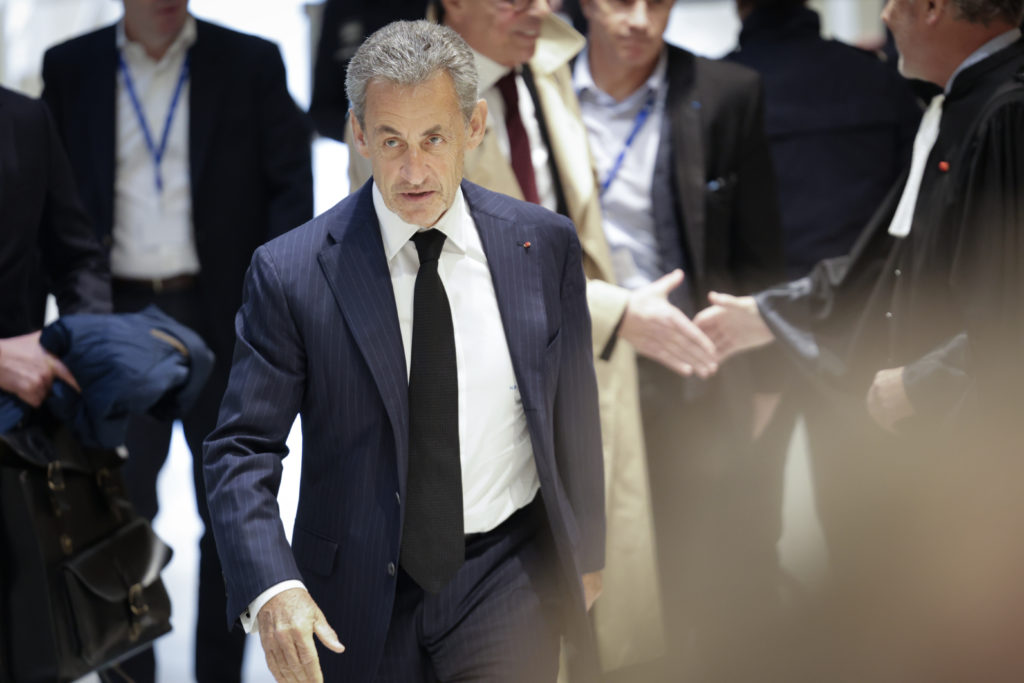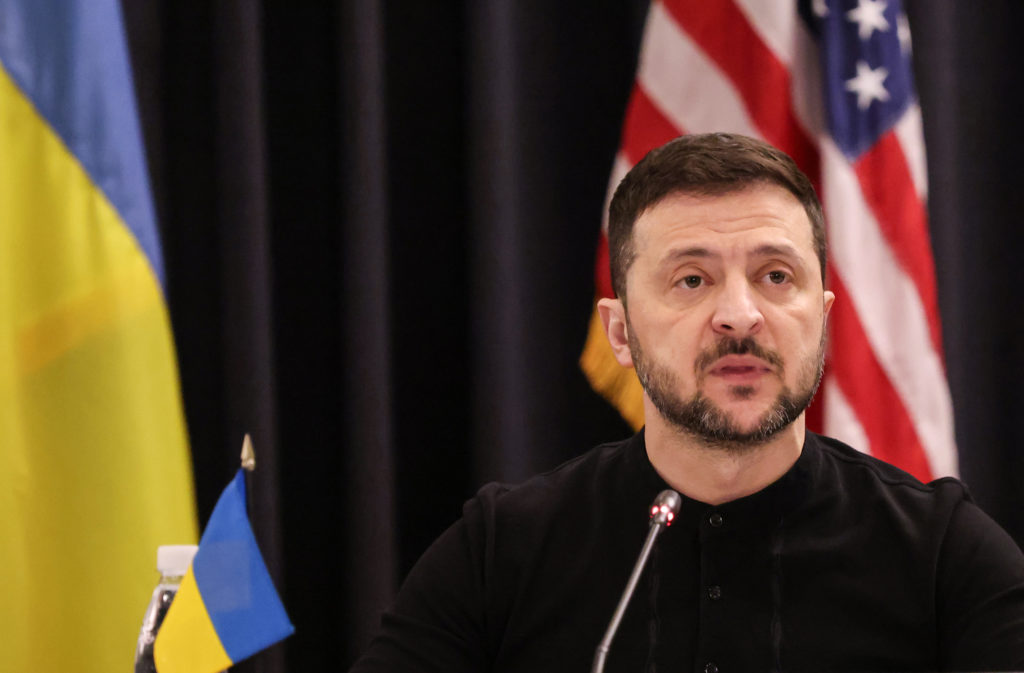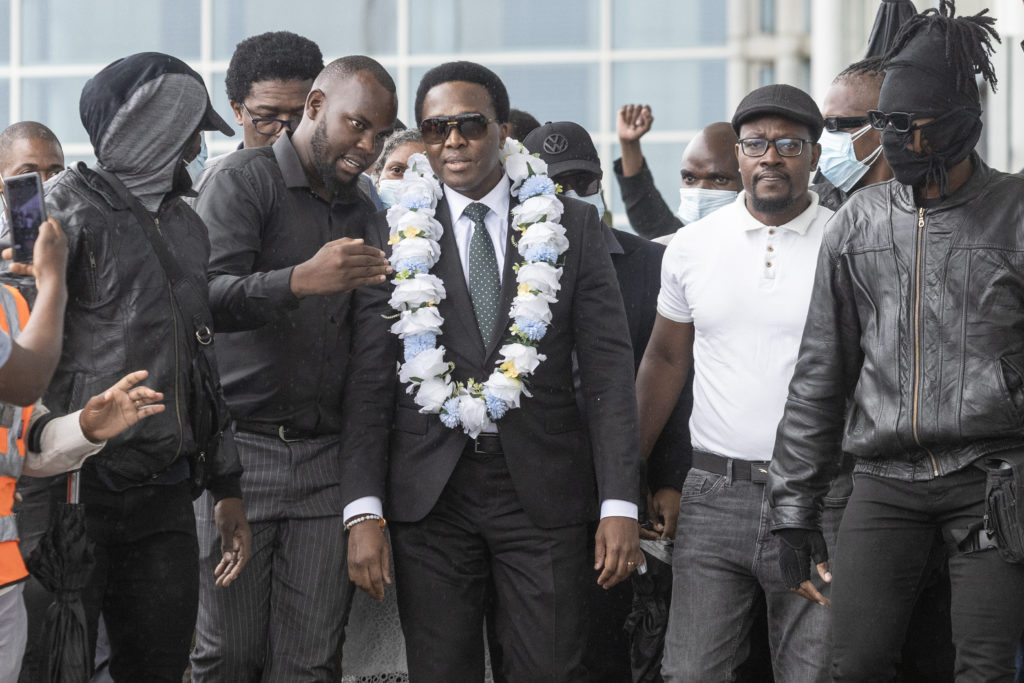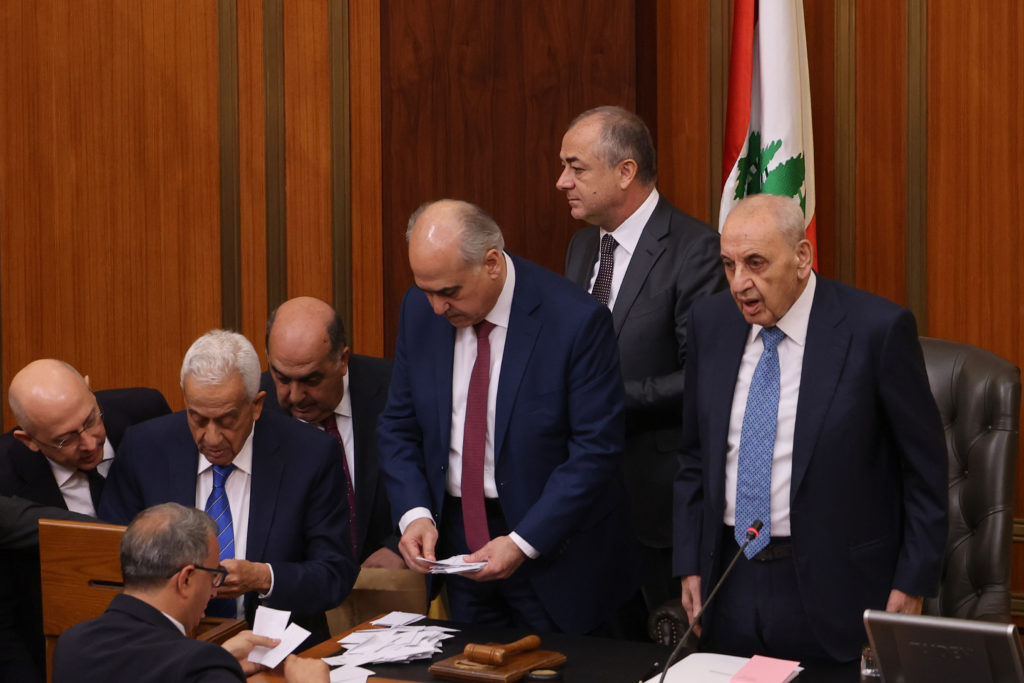Austria’s former vice-chancellor and longtime leader of the far-right Freedom Party went on trial for alleged corruption on Tuesday, in a case linked to a scandal that brought down the government.
Heinz-Christian Strache, one of Europe’s most high-profile far-right leaders, was forced to resign as vice-chancellor in 2019 after a video was published showing him offering public contracts in return for electoral campaign support from a woman posing as a Russian investor.
The scandal, dubbed “Ibiza-gate” as the video was secretly filmed on the Spanish party island, spawned a sweeping corruption investigation which uncovered several different accusations of wrongdoing.
A prosecutor laid out the charges at the beginning of Tuesday’s proceedings, saying that what Strache said in the Ibiza-gate tapes was “burned into the collective memory”.
Strache arrived at the court in Vienna wearing a mask and a dark suit, refusing to comment to journalists covering the trial.
The 52-year-old struck a combative figure as he sat in the dock, taking copious notes as the prosecutor spoke.
– Leaked messages –
The trial concerns charges that Strache helped change a law for a Freedom Party (FPOe) donor when he was in a coalition government with the centre-right People’s Party (OeVP) of Chancellor Sebastian Kurz.
The donor, Walter Grubmueller, owns a private clinic in Vienna and told a parliamentary committee that he had invited Strache aboard his yacht and on a vacation at his holiday home on the Greek island of Corfu in 2016.
While negotiating the coalition agreement with the OeVP, Strache directly asked the clinic owner “which amendment to the law” he would need for his “clinic to finally be treated in a fair manner”, according to chat messages uncovered in the investigation which were leaked to the media.
In the messages, the donor reportedly said that he would deliver a draft law to the FPOe’s party headquarters.
After Strache took office in 2017, the far-right took charge of the health ministry and went on to oversee a change in the law that widened the category of establishments eligible for public funding.
According to expert estimates, this means clinics like Grubmueller’s were allowed to apply for as much as 2.2 million euros ($2.6 million) in funding in 2019 alone.
Grubmueller is also standing trial alongside Strache, but denies any wrongdoing or that he profited from the amendment.
When the “Ibiza-gate” footage emerged in 2019, the coalition between the Freedom Party and the People’s Party collapsed.
In the video, Strache claimed that several high-profile billionaires and international gambling company Novomatic had been funding political parties through off-the-books donations to associations, some owned by high-ranking OeVP politicians.
All those named by Strache deny any wrongdoing.
The claims triggered an array of investigations, including a probe into the appointment of Thomas Schmid — a civil servant and Kurz ally — as head of the Austrian state holding company OeBAG.
Kurz told a parliamentary committee that he had no hand in the appointment, but leaked chat messages have suggested otherwise.
Prosecutors have now put him under investigation for the possible offence of making false statements to the committee.
– Far-right infighting –
Kurz, who returned as chancellor after a snap 2019 election, denies the allegation.
If he is indicted, he faces going on trial for an offence which can be punished by a prison sentence of up to three years.
Since Strache resigned after 14 years at the helm of the Freedom Party, he has also been accused of embezzling party funds to pay for his luxurious lifestyle.
The revelations disillusioned many of the party’s voters, and the FPOe slumped from 26 percent of the vote in the 2017 general election to 16 percent in 2019.
Last year Strache attempted a comeback with a bid to be Vienna’s mayor, but his list won just three percent of the vote.
The FPOe has spent much of the time since the scandal consumed by infighting.
Last month Strache’s successor as leader, Norbert Hofer, resigned after weeks of tension with party colleague and former Interior Minister Herbert Kickl.
Kickl, seen as a party ideologue and mastermind of some of its anti-Islam and anti-migrant campaigns, swiftly took over as leader.

